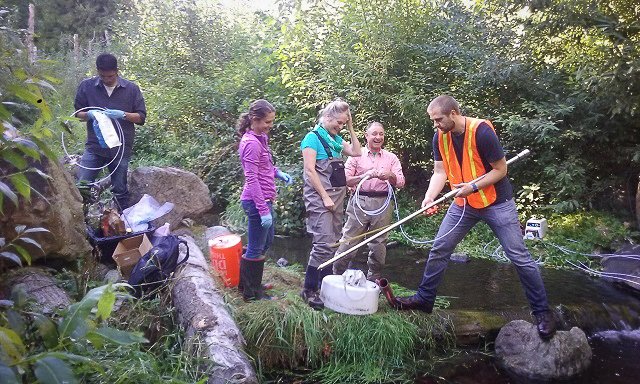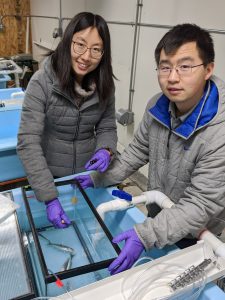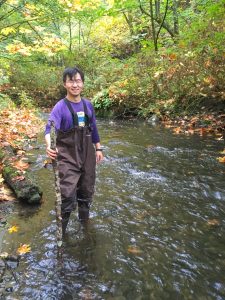
“Fewer.” “Smaller.” “Slower.” “Weaker.” “Sicker.” “Gone.” Even “extinct.” Sad words, but these are the adjectives of the Anthropocene that now describe far too many aquatic organisms we share the world with. Why are they disappearing? What have we done and what societal processes require change? What are the best solutions? These are some of the great scientific and societal questions of our time. While many factors contribute, it is clear that poor water quality from chemical pollutants likely plays a role in declining abundance and fitness for at least some aquatic species in some places. Yet we often have little idea of what chemicals are really driving adverse effects, or even which biological endpoints are most important to study. To address these challenges, my research group works to understand the role of organic contaminants in environmental quality.
The Challenges

Despite some successes, humans do not seem to be successfully preventing environmental pollution across most of the world. We produce and use tens of thousands of chemicals and yet only a few percent of those have any good safety and fate data despite widespread use. Humans still haven’t figured out how to identify or manage bioactive contaminants and related effects in exposed organisms. What happens when we alter growth, survival, immune function, physiology, fitness or reproduction in aquatic organisms (or even humans) without killing them outright or giving them cancer? Is that organism capable of thriving in their environment and succeeding within their ecosystem? Scientists document that contaminant exposures can change growth, survival, fitness, and fecundity, among other endpoints. Over time, such biological changes can even reduce the populations of aquatic organisms, trending them ever lower or less successful when present. Sound familiar? How can we detect, predict or control these insidious water quality problems? What needs to be done to better manage environmental health? In my research group, I hope to find these answers.
Research Opportunities

Here at the University of Washington (both the Tacoma and Seattle campuses) and the Center for Urban Waters (Tacoma, WA), I am always looking for well-qualified students and motivated researchers interested in water quality. While my primary research interests lie at the intersection of water, chemicals, and fish, I am broadly interested in many environmental engineering and chemistry projects. Whether you are an undergraduate student, graduate student, or post-doctoral researcher interested in career development, skills acquisition, or graduate education at UW, please send me a statement of interest, a CV, and an unofficial transcript, and we’ll see what’s possible.